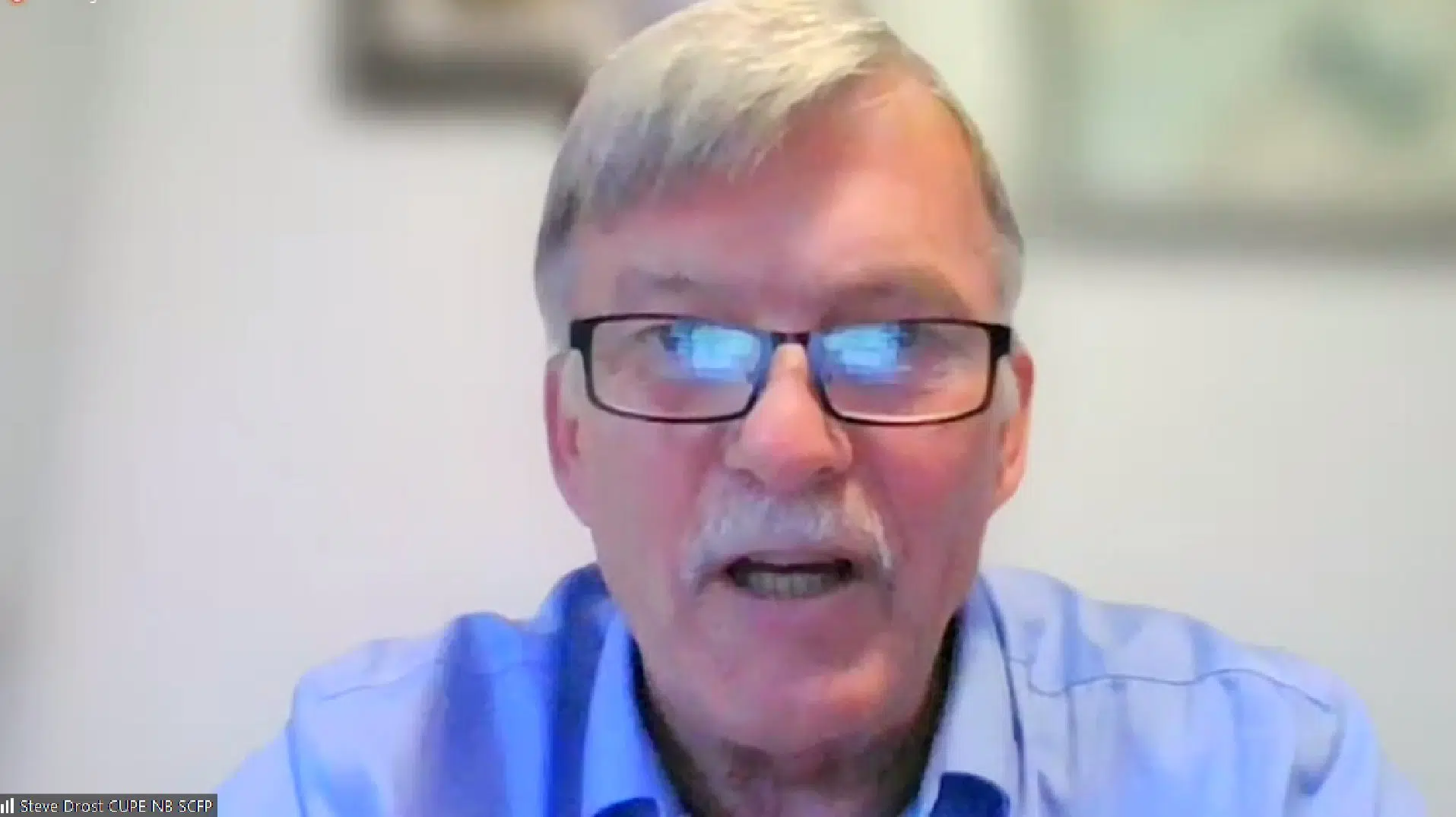
Stephen Drost, the president of CUPE New Brunswick, speaks during a virtual news conference on Sept. 29, 2021. (Image: Zoom video capture)
Do not expect any strike action from CUPE New Brunswick until at least later this month.
All 10 CUPE locals that are without contracts will be in a legal strike position as of early next week.
But president Stephen Drost said the locals have agreed not to withdraw services until at least Oct. 22.
“Our groups were very clear: let’s give this a couple of weeks, see where this pandemic is headed,” Drost said in an interview Thursday.
A 14-day “circuit breaker” will begin Friday evening in areas of New Brunswick with a high number of COVID-19 transmissions.
That includes Zone 1 (Moncton region) as far north as and including Sainte-Anne-de-Kent; the northern portion of Zone 3 from and including Deerville and Florenceville-Bristol; and all of Zone 4 (Edmundston region).
“We know that systems are in critical condition right now because of being grossly understaffed and underfunded for way too many years,” said Drost.
“We work in these systems every day and we want to make sure that we do our due diligence, that the public is protected but also protect our workers.”
Members of the 10 locals, which represent more than 22,000 public-sector workers, have held a series of strike votes in recent weeks. The results for the final local were released Wednesday.
Eight of the locals are already in a legal strike position and have some have begun implementing “contractual obligations” meaning they will only do what is required of them in their collective agreements.
In terms of job action, Drost and CUPE would not show their hand, saying they will withhold “very specific details of their plans of action” which includes the dates of when job action may begin.
Drost said the union is prepared to go back to the bargaining table at any time, as long as the government removes concessions it wanted CUPE to agree to.
“We want to get back to the table and resolve this and I’ve been very clear: if the premier really wanted to resolve this labour issue, he could in a matter of minutes,” he said.
The province’s most recent offer included a nine per cent wage increase over six years, while the union is seeking 20 per cent over four years.
With files from Robert Lothian.







